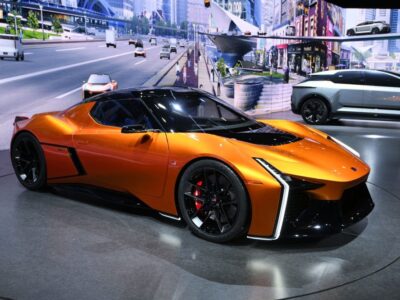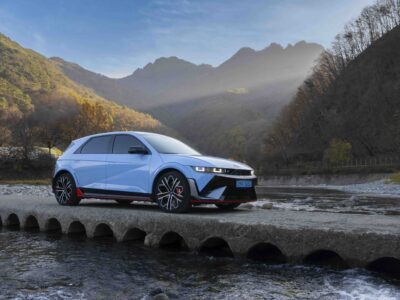We know that an electric vehicle on the road isn’t producing tailpipe greenhouse gas emissions like traditional, internal combustion engine models do. But what about the emissions involved in manufacturing electric vehicles? How do those manufacturing emissions compare to the emissions produced by gasoline-fueled cars? Are electric vehicles really better for the environment?
A comprehensive new study from the International Council on Clean Transportation (ICCT) seeks to answer those very questions. Although electric cars produce emissions during manufacturing and use electricity generated from coal and other nonrenewable sources, on the whole, electric vehicles produce far fewer emissions than their gasoline-fueled counterparts.
The study looked at the average greenhouse gas emissions of passenger cars over a typical lifespan, comparing battery-operated electric vehicles (BEV) with internal combustion engine vehicles (ICEV). The emissions comparison takes into account the total greenhouse gas emissions involved in the battery mining process for electric vehicles as well as the manufacturing processes for both BEVs and ICEVs.
Like any other product, electric vehicles produce emissions during the battery production and manufacturing process. The electricity used to charge the batteries of BEVs may also produce emissions unless the electricity comes from renewable sources such as wind or solar. But even after factoring in these variables, BEVs are still more efficient and climate-friendly than traditional ICEVs.
The global and future-driven scope of the study makes it stand out among other studies of its kind. ICCT compared data from several major markets including the U.S., China, India, and Europe, which account for about 70% of global passenger car sales. The study also considered “all relevant powertrain types, including plug-in hybrid electric vehicles (PHEVs), and an array of fuel types including biofuels, electrofuels, hydrogen, and electricity.” And rather than compare data from the last several years, the study analyzes cars registered in 2021 against those predicted to be registered in 2030.
The study concludes that “even for cars registered today, battery electric vehicles (BEVs) have by far the lowest life-cycle GHG emissions… emissions over the lifetime of average medium-size BEVs registered today are already lower than comparable gasoline cars by 66%–69% in Europe, 60%–68% in the United States, 37%–45% in China, and 19%–34% in India.”
As the electric grid continues to shift towards renewable sources of energy like solar, hydrogen, and wind, the gap between BEVs and ICEVs is expected to widen further. When BEVs are charged using electricity from renewable sources, they contribute to far fewer emissions. According to Clean Technica, electricity from coal has fallen from 45% to 23% in the span of a decade, and this reduction makes BEVs even more efficient.
As for gasoline-based cars, there’s no way to reduce their carbon emissions over time. ICEVs emissions are fixed and will not reduce as the electricity grid becomes more sustainable. But BEV emissions will continue to decline as we inevitably continue to shift to renewable energy sources.
The ICCT concludes that switching to electric passenger vehicles could drastically reduce emissions from transport. And if we are to meet the demands of the Paris Climate Accord, it will be necessary to drastically reduce transportation emissions. According to ICCT, “only battery-electric and hydrogen fuel cell electric vehicles have the potential to be very low GHG [greenhouse gas] passenger vehicle pathways. There is no realistic path to deep decarbonization of internal combustion engine (ICE) vehicles within the time frame of the Paris targets.”





